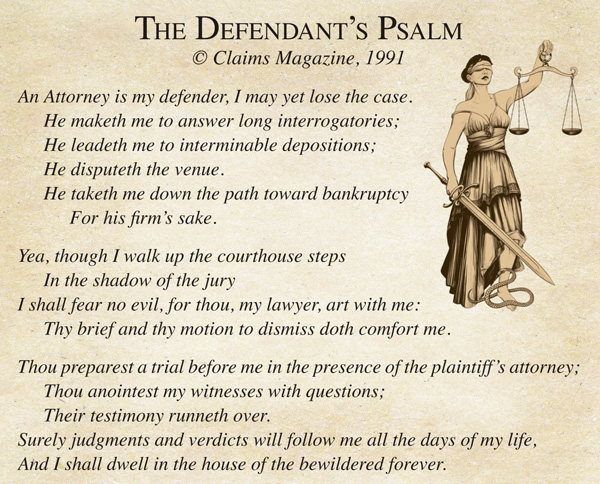
Last month we explored how litigation affects claims and why it is the adjuster who manages the claim file and litigation, deciding when to settle and when to fight, knowing that court fights are expensive. Adjusters must make correct decisions based on the law in the jurisdiction where the claim occurred — and within the terms of the policy contract. But that “law” is generally not statutory law passed by the legislature, but rather the doctrines and legal principles determined by courts in that jurisdiction.
How does one know what the law is unless a review is made of every prior applicable case in that jurisdiction to see what was decided? Adjusters must keep current on what their courts are determining; that is part of continuing education. Most claims involve tort law — not statutory law — and are subject to legal theories and doctrines established by earlier court decisions, although a future court may reverse those decisions. What happens at the “trial court” level is subject to change.
Recommended For You
Want to continue reading?
Become a Free PropertyCasualty360 Digital Reader
Your access to unlimited PropertyCasualty360 content isn’t changing.
Once you are an ALM digital member, you’ll receive:
- Breaking insurance news and analysis, on-site and via our newsletters and custom alerts
- Weekly Insurance Speak podcast featuring exclusive interviews with industry leaders
- Educational webcasts, white papers, and ebooks from industry thought leaders
- Critical converage of the employee benefits and financial advisory markets on our other ALM sites, BenefitsPRO and ThinkAdvisor
Already have an account? Sign In Now
© Touchpoint Markets, All Rights Reserved. Request academic re-use from www.copyright.com. All other uses, submit a request to [email protected]. For more inforrmation visit Asset & Logo Licensing.







